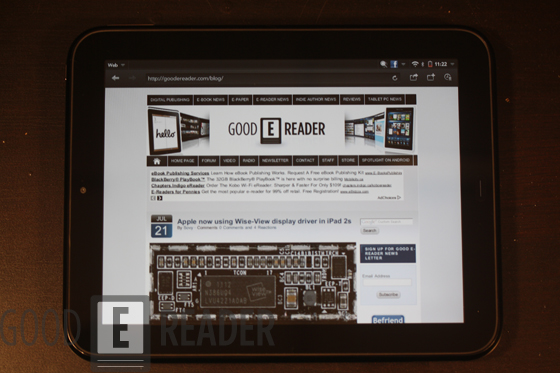
Yesterday HP purchased Autonomy Corp, a company that specializes in enterprise level cloud services, for 10 billion dollars. HP is redesigning the company to focus more on service and support and will spin off its computer business. The company also acknowledged that it will not focus on webOS based devices such as the Pre smartphone line and any continuations of the HP TouchPad.
HP has been a leading computer manufacturer for many years and only last year acquired Palm in order to release mobile computing devices with an alternative operating system to iOS, Windows, and Android. Sales on the TouchPad have been lackluster and has continuously seen price slashes since its release only a month ago.
The company is not giving up on its billion dollar Palm investment and instead will be licensing webOS to interested parties. No one has stepped forward on the day of reckoning at HP, but their intention is not to give up entirely on the OS.
What is the future of webOS? The company had an all hands meeting today at the webOS Global Business Unit. The meeting synopsis was basically HP will only develop the operating system to a point where they can easily license it to other parties. Stephen Dewitt, the VP of Palm based operations, said ““We are not walking away from webOS,” with the goal of having the platform’s future outlined by within two weeks. HP VP, Personal Systems Group, pointed out that HP could license webOS, since it’s designed to work on popular Qualcomm chips.”
The end of HP in the computing, phone and tablet arena is due to the increased level of competition without a definitive payoff. For every successful product that resonates with the marketplace you have a thousand companies like Augen, Velocity Micro, Elocity, and more all floundering in the market. CFO of HP Cathie Lesjak elaborated “To make this investment (webOS) a financial success would require significant investments over the next one to two years, creating risk without clear returns. Therefore we have decided to shut down operations around webOS devices and will be exploring strategic alternatives to optimize the value of the software platform and development capability.”
via Bloomberg
Michael Kozlowski is the editor-in-chief at Good e-Reader and has written about audiobooks and e-readers for the past fifteen years. Newspapers and websites such as the CBC, CNET, Engadget, Huffington Post and the New York Times have picked up his articles. He Lives in Vancouver, British Columbia, Canada.
